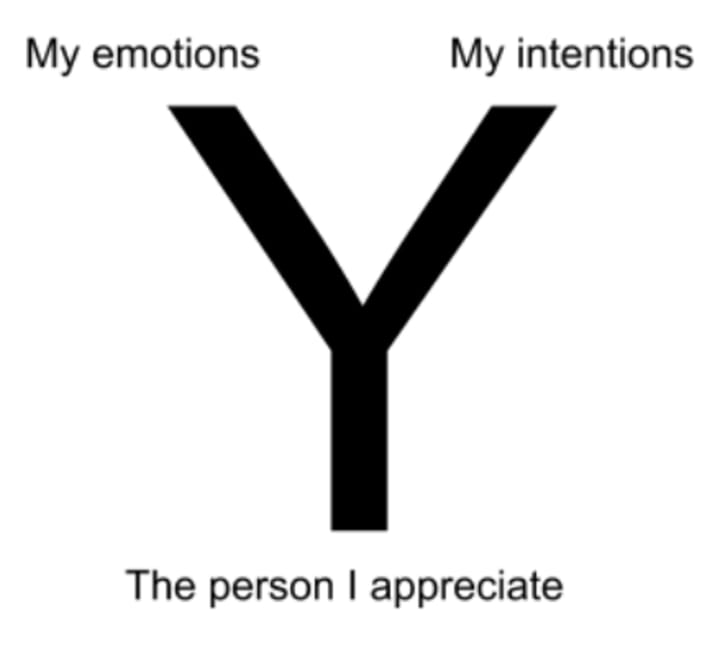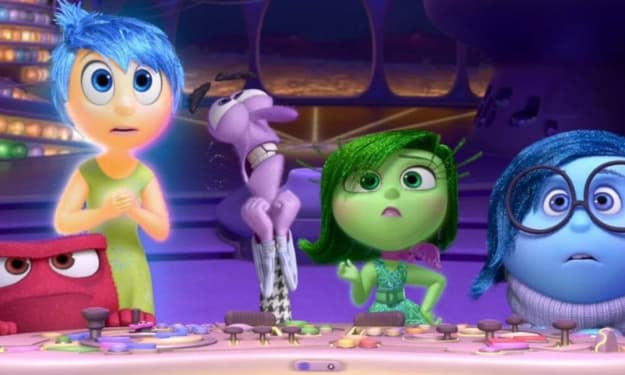The Y Connection Method
an Appreciation Hack for Leaders

“To have someone understand your mind is a different kind of intimacy” - urbanrealism
Ever since we have entered the Covid-19 era, I must have read at least a dozen articles recommending to lead with empathy and appreciation for your staff.
Those seem like simple enough concepts to understand though they are incredibly hard to get right in practice. I have been guilty in the past of thinking I was great at both until I was told: “You suck at both”; meaning you might suck at them too without even knowing it.
After I was told that, I became obsessed with getting better at it and as an obsessive person, I started breaking things down to understand them.
Empathy, not sympathy
Empathy is the capacity to place ourselves in another person's position and understand and feel what they may be experiencing, taking their perspective.
I think the biggest issue with empathy is that it is too often mistaken with sympathy.
Empathy requires us to reach deep into our emotional repertoire. Instinctively, we don’t like to do this because it requires us to be vulnerable, and bring up emotions we would feel in a dire situation that sometimes aren’t very pleasant, or may even bring to light something darker inside of us.
Sympathy is more of an intellectual process. We do understand what a person must be going through though we are not connecting on an emotional level with them.
Taking the example of someone losing their job, being sympathetic is realising that the person must be upset at the situation. Being empathetic is processing all of the following and more:
- I’d be worried about paying the bills. Are they?
- I’d be scared about the prospect of looking for another job in the current job market. Are they?
- I’d be petrified I’d have to settle for a lesser pay and position, not in line with my career aspirations. Are they?
- I would feel betrayed that my employer would have let me go rather than someone else less deserving. Are they?
- I would be dreading announcing it to my partner. Are they?
- etc
A good barometer for us to know whether we are being sympathetic or empathetic is that sympathy makes you want to give the person advice; empathy makes you want to give them a hug.
If you wish to understand more about the difference between empathy and sympathy, University of Houston research professor Brené Brown says it best:
Appreciation
Appreciation is an expression of thankfulness towards someone or something.
And when it comes to appreciation, I am a big believer that there are such things as empty thank you’s. Don’t get me wrong, saying “thank you” is rarely a bad thing but saying “thank you” because it is the norm and/or feels appropriate in the moment is not necessarily appreciation, it can just be politeness. Politeness doesn't carry the same power as appreciation.
True appreciation needs to hinge on empathy, not sympathy, as it requires us to connect with someone on an emotional level to express thankfulness. It requires clarity on WHY you appreciate someone.
I am quite a process-driven person so I developed a method that helps me gain clarity on the WHY in order to be truly appreciative.
Funny enough, I got inspired by the 5 Why’s method. For those unfamiliar with it, the 5 Why’s method was created by Toyota in the 1930’s and is still being widely used nowadays by organisations around the globe. The premise is simple; when a problem occurs, you’ll be able to drill down to the root cause by asking the question “Why?” 5 times and therefore come up with counter-measures to prevent the problem from occurring again.
I use a spin of that method for appreciation. I like to start with my thankful statement then ask myself the question “Why do you appreciate that?” until my answers shift from he/she/they to I. It usually doesn’t require 5 rounds of questions but it allows me to find the connection between the person I want to appreciate, the reason why I want to appreciate them and my own feelings. This is what helps me shape genuine appreciation. I call it the Y connection method.

This is how the Y connection method goes:
- I am thankful for ________________
- Why do you appreciate that?
- Because….
- Why do you appreciate that?
- Ask “Why do you appreciate that?” until he/she/they turns into I
Let’s take a situation that may unfortunately be very relevant today. As a senior leader, imagine that to survive the Covid-19-triggered economic downturn, you had to reduce the hours and income of your staff.
A basic “thank you” will sound like “I want to thank everyone for that”. It is not bad though it is a bit vague and doesn’t convey a lot of emotion or empathy.
Let’s try this with the Y-connection method:
- I am thankful for everyone accepting to reduce their hours
- Why do you appreciate that?
- Because it is a big sacrifice for all of them
- Why do you appreciate that?
- Because they could have refused
- Why do you appreciate that?
- Because I feel that they care about the company
- Why do you appreciate that?
- Because it makes me proud of them, trust them and feel confident
You could go on to go even deeper but what we have above already gives us enough clarity and emotional connection to shape genuine appreciation as follows:
“I am thankful for everyone supporting the company by reducing their working hours. I know it was a big ask and was never taken for granted. It makes me proud to work with such trustworthy individuals and I am confident we will get through it together”
Would you agree that it doesn’t just sound better, but also has a greater emotional impact?
This may be what leading by empathy and appreciation look like.






Comments
There are no comments for this story
Be the first to respond and start the conversation.